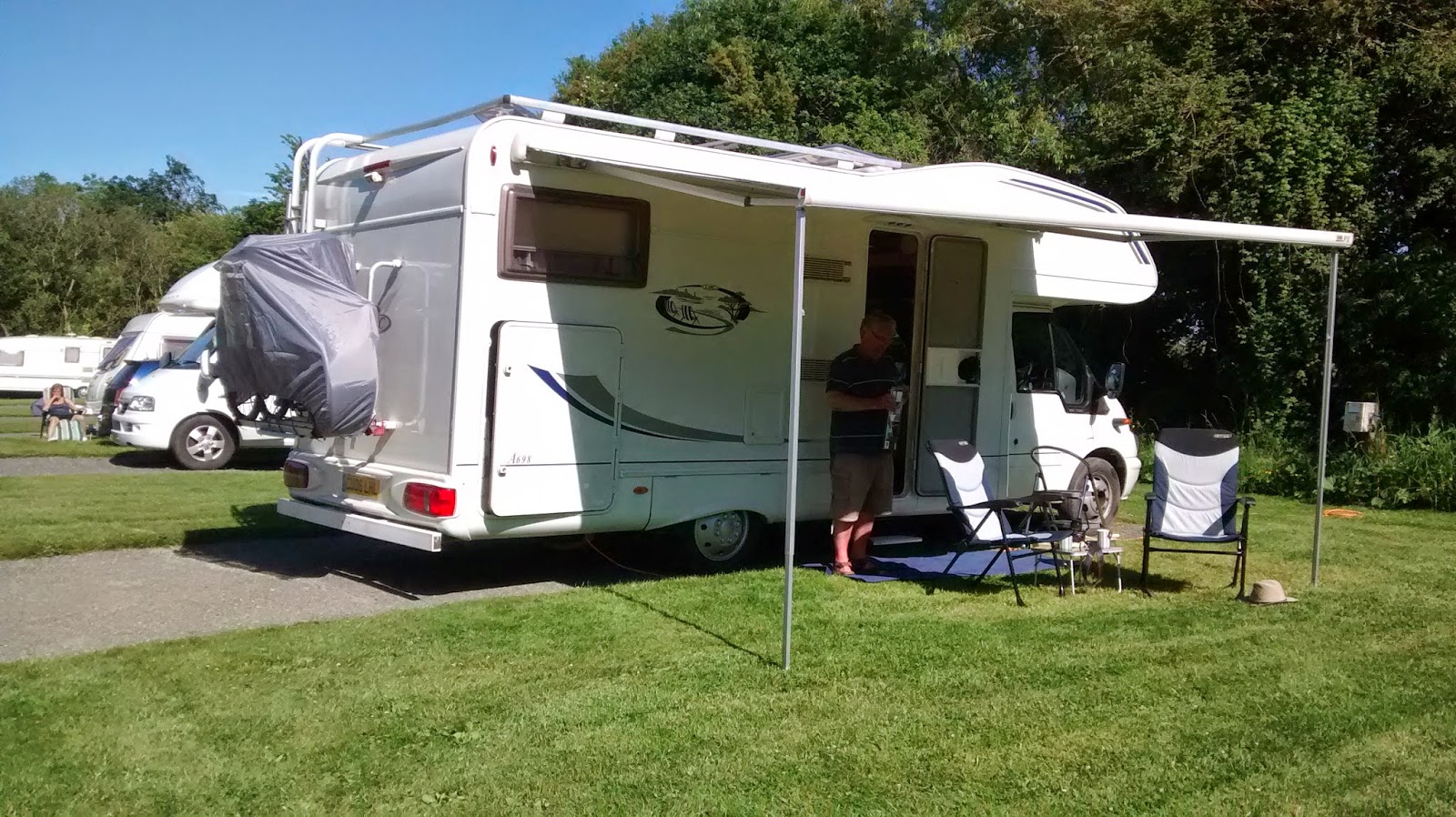"when I try to imagine a faultless love
Or the life to come, what I hear is the murmur
Of underground streams, what I see is a limestone landscape."
If I was invited to rewrite the lines with my own 'special place' I would have to supplant 'murmur of underground streams' with 'crunch of wavelets on shingle' and 'limestone landscape' with 'empty coastline'. So I wonder if it because I love the sea and coastal landscapes so much that I find 'the seaside' so unsatisfactory? It is a bland pastiche, a suburbanised version of the coast. Like other places of corralled entertainment, such as a football stadium or New Year's eve, the seaside has developed strange ritualised behaviours. Today, in Benllech, a small seaside resort situated at the northern end of Anglesey's beautiful Red Wharf Bay, there was enough of ritual being played out to keep any amateur anthropologist entertained for the afternoon.
1. Chilly breeze - what chilly breeze?
 |
| Between the 'sunny periods' strollers became only too aware of the biting northerly which sliced across the wide bay. |
 |
We'd taken 'sensible precautions'. donning fleecy hooded jackets to ward-off hypothermia |
Fellow holidaymakers were built of sterner stuff. The beach was populated by brisk dog walkers, not one was wearing a jacket , and most were striding boldly through the wind-chill in thin tee-shirts and beach shorts. Why? Because mid-June with clear blue sky = holiday wardrobe whatever the weather. We have observed the opposite behaviour in the Mediterranean at Easter. In Italy particularly, it might be a stunningly sunny, 25 degrees, but children are still swaddled in scarves and oddly pneumatic looking quilted jackets; Grandma is still showing-off her fur jacket, and it's only tourists from the north, Dutch, German, British who are mad enough to be in shorts and tee-shirts or likely to risk a dip in the pool. I have a theory that there must be some little understood local custom - like the way cappuccino is regarded as dangerous to the digestive system if consumed after 11am - that governs the moment when it is ok for Italians to don summer clothes - it could be a saint's day - May 25th, St Magdelena de Pazzi - that might be it. Anyway, what this all goes to show is that culture rather than nature governs social mores.
Talking of which, there's the question of beach shelters and the BPKSS. This latter behaviour affects only British males between 21 and 35 years of age, and though observable generally, is especially prevalent amongst younger family men. Giving the phenomena its full nomenclature: 'Bare Pectoral Kneecap Swagger Syndrome' it manifests itself thus.The young family man, on arrival at the sea front car park, gets out of the car, stretches in a distinctly primate manner, and then, weather conditions notwithstanding, removes his top. This gesture immediately affects his gait, swinging knees, elbows and chest outwards, chin upwards like a battleship prow, he affects a machismo swagger; garish tattoos assist the effect of manly assertion, irrespective of girth. Head of the family status can be futher underlined by tucking some sundry item of beach equipment under the arm, the more ridiculous the object the greater the status, giant inflatable ducks or lime-green li-los in the shape of a manically grinning crocodiles are especially effective.
Then there is the question of beach shelters. Some photographic evidence is called for here:
Displayed in all their stripy glory, the traditional Brtish windbreak, then on the left the continental, more recent interloper - the beach shelter. Now beach shelters are simply not going to hack it in the UK, partly because they are really parasols with poles, designed to enable scantily clad beach babes to shelter from the searing Mediterranean sun. They entirely miss the point of the native grown windbreak. Firstly it provides a substantial barrier against the constant freezing cold blast that is euphemistically called a 'sea breeze'. Secondly they are tall enough to shelter those of us who regard sunbathing as a trifle left-field and prefer to sit primly on a folding chair with our noses in a book. Most importantly, however, they allow the British family to stake-out territory both literally and figuratively, so minimizing contact with neighbours and protecting that most precious of British values - privacy.
So, imagine the sound of the seaside - the gentle hiss of waves on sand, the cry of gulls, the chime of an ice-cream van in the car park and the slightly random thud of rubber mallets on wood as scores of British families drive poles deep into the damp sand, each admiring the sea-view safely esconced behind 'nylon curtains' safe from prying eyes.
A walk along the coast paths of Cornwall or Wales will reveal the natural beauty of our coastline, but if you want to learn a little of the curious character and habits of the islanders who live there, then a couple of hours at the seaside might well be a good starting point, that is if you can see anything beyond the wall of windbreaks.























